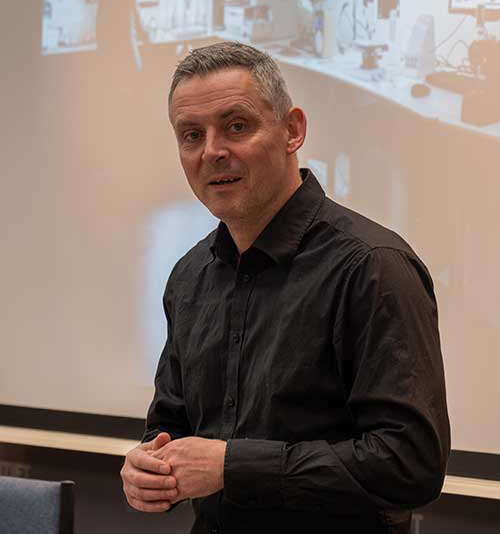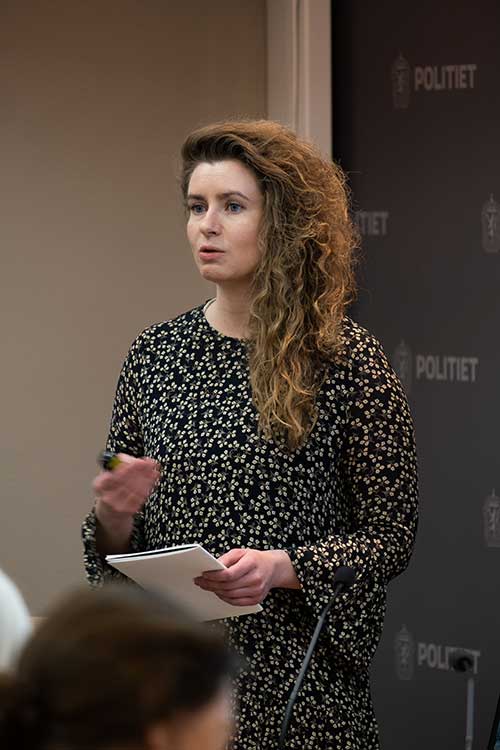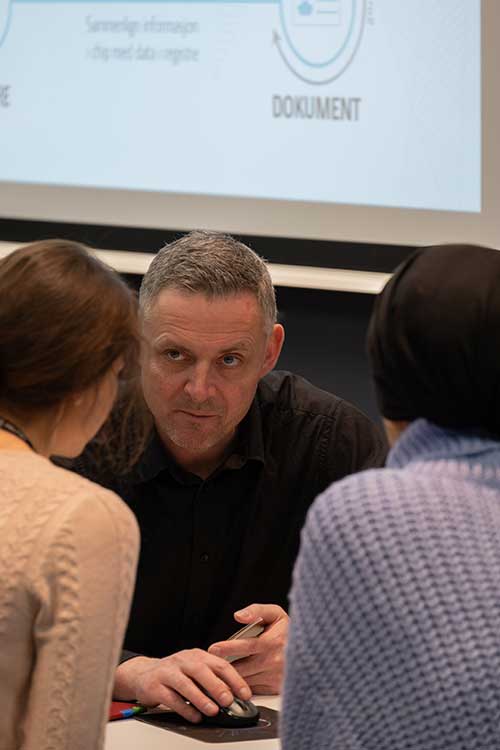Great enthusiasm for training
(Above: The concept of «Proven identity» is one part of what officers at the passport offices are introduced to during the practical training in ID work at passport and ID offices).
-There is really a great enthusiasm here, says Vidar Rasmussen, obviously very pleased. He is one of two officers from Norwegian ID Centre whose task it is to train the passport office employees for their work. Along with his colleague Hanne Olberg he is responsible for giving the participants better knowledge and capacity for solving various ID-related work tasks.

(Above: Vidar Rasmussen of Norwegian ID Centre)
The location is Tønsberg Police Station. Along with around 20 people from Southeastern Police District we are present to take a closer look at how things are done. Along with three local ID experts Hanne and Vidar will take the participants through a day with a variety of practical exercises.

(Above: Hanne Olberg of Norwegian ID Centre)
The first point on the agenda is applied interview technique. Hanne and Vidar take turns in leading the participants through the contents. How should an interview be carried out, and how should the questions be formed? What should be said, and what should definitely not be said? The questions are many and varied, but no worry; our experts can account for all aspects of interviewing. We are told about basic principles for good questions, about what makes a statement trustworthy and how to best handle unforeseen and unexpected things that might turn up.
But the day contains far more than just standard lectures. After the first break the participants form small groups that are spread to a number of different stations. And now the fun begins! Learning new skills is often best done with learning by doing.
Stations A and B are first out. The participants are tested in ID document check. On the table are a bunch of false or forged documents. And now the burning question is: What is the procedure?

Vidar (above) demonstrates how a magnifier should be used to scrutinize the documents properly. Is the microprint clear? What about the corners; do they look the way they are supposed to? Slowly but surely it dawns upon the people around the table how this should actually be done. The buzzing of voices all over the room increases and several comments testify to great enthusiasm and motivation.
-But this is real fun!, somebody exclaims at station A, everyone there scrutinizing the documents, staring through magnifiers, bent over the documents. This is about the tiniest details, and not as much as a microsign is overlooked. Station training is fun, and practice makes perfect, apparently.
The rotation continues. At Station C the focus is on judicial aspects. The participants are introduced to methods for proving an identity. Which authorisations and regulations apply when processing an application for passport or emergency passport? With her experience from public administration, Hanne leads the participants through the regulations. The answers are worked out jointly, around the table, to such things as ‘What should be checked?’, ‘When can you with any certainty conclude that the identity has been proven?’, and, perhaps most important; ‘What do you do when doubt gets the upper hand?’
Lunch and mingling are followed by new stations. At Station D, the topic is assessments linked to biometrics collection, whereas Station E gives an introduction to UV print and reference databases. At the two final stations the participants are given an introduction to the security features that an officer needs to be familiar with at an ID document check, and the procedures associated with face recognition. The programme is diverse, a fact which is obviously appreciated by the participants.
Back at the office it is time for a bit of reflection. What are the thoughts of the participants after the training?
- Excellent course! Instructive!
- Good stations, small groups. Useful for raising awareness, learned a lot of useful things. Smashing good!
- Well organised. Practical exercises in small groups is very good. And the instructors…!
The feedback from some of the participants indicates that they definitely have benefited from taking a day as Norwegian ID Centre students, with its focus on variation, group exercises and learning by doing.
All photos: Thomas E. Oksum, Norwegian ID Centre

